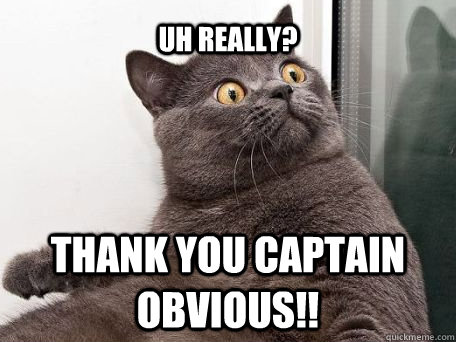Who am I? How do I see myself?
At the risk of turning a community banking blog into an existential conversation about the meaning of life…let me advise you to spend some time asking yourself that in light of your position as a community banker.
Here’s why.
In preparing a webinar series on fundamental banking principles (available soon at barret.ws! Check website and social media for updates. #shamelessplug) I began to see one of several emerging trends in my lessons…and it may not be news to you, but it was eye-opening in terms of scope to me. Customer service (i.e. good community banking) = service to our communities.
“Good call, Captain Obvious!” you may be saying.

That’s fair…but have you ever thought of yourself as doing a public good or being vital to the success/failure of your community/country or even really contemplated the importance of financial intermediation in the everyday life of those around you? If I were being honest, I don’t think I could say I had ever considered “banking” in those terms outside of the “warm fuzzy” moments we all have when we were able to make someone’s life better.
And those moments should not be ignored. Impacting someone’s life for the better or being a part of a momentous moment in their life is awesome. What I am talking about here is at the macro level. I am talking about the importance to the banking function as a vital part of the community’s success/failure. Consider our role as financial intermediaries by matching net savers with net borrowers. In an economic system where credit is a necessity, what other function can provide this necessity (and do so at a profit and therefore with capitalistic efficiencies) to the community. Does the hardware store have the necessary inventory without financial intermediation? If not, then how am I (and others) supposed to finish off the “honey do” list which, hopefully, improves our largest investment…our homes and therefore adding value to our neighborhoods. How can the contractors and builders go about building and repairing the buildings that are a mark of positive economic development? Then, consider that those contractors and builders have families that must eat, be educated, wear clothes, drive cars/trucks, etc. If you live in an agricultural community like I do, how important are the farms to the success of your community? Would those farms operate without the use of capitalistic financial intermediation? Also, what happens to that check you write at the grocery store (or debit card swipe)? It goes through, hopefully, some bank somewhere…and hopefully your bank. Is a payment system that is efficient and trustworthy an important part of the community’s success? Ask your local businesspeople/customers.
So, what does this mean? It means that any role in the bank…from front line teller to back office admin…not only has a part to play in the function of the bank, but a role to play in the community. If net savers did not have adequate (read: trustworthy) banking options, why would they even darken the door (or download the app) of the bank? Without net savers…there are no net borrowers. Now, in light of the “community banking = community service” hypothesis, “good customer service” takes on a whole new meaning. Now, instead of just being a good idea or a best practice or something our boss tells us to do, having employees that are competent, professional, educated, and personable is, literally, a community service. It is vital to the success of the community.
Now, how does the average bank employee impact our national economy or our national life? If you’ll think about the definition of Gross Domestic Product (that lecture you may/may not have slept through in Econ 101) as being the sum total of all goods and services produced within a country’s borders and then express that mathematically as GDP = Consumer Consumption + Investment + Government Expenditures + International Export (GDP= C + I + G + X), it becomes readily apparent. Does community banking impact consumer expenditures? That’s the easy one. Does community banking impact investment? Outside of the trust department and the investment representative your bank may have, do you finance investment real estate? How about government expenditures? Take a look at your bank’s UBPR and see the investment mix. Community banks are an EXTREMELY important consumer of government debt. While I admit that the International Export may be a bit of a stretch for some community banks, there are community banks that offer these services…but, also, if your small business customers have websites and customers in other countries, then, you impact International Export.
So, financial intermediation is more than just an academic definition of a bank. It is at the very core of the community and the country. Don’t get me wrong, I love the number crunching and the capital allocation and the SWOT analysis and all that type of stuff that goes into banking. Solving a cash flow problem is more fun to me than it probably should be…and don’t get me started on the importance of understanding ratios. But when we really think about it…when we really drill down to what we do and why…all of this is because we want our communities and our country to thrive. We want to be good stewards of the depositors’ trust as well as use the people/analytic skills we have for the public good. We want to be a part of a thriving community that sees itself as viable and growing…not stagnant or dead.
Today (or whenever you read this) take 5 minutes to think about your role in the community because you are a banker. Pretty soon, if you are honest with yourself, it will be quite exciting (and humbling!) to think about the role you play. Let that moment, then, color your day-to-day in the bank.

Byron
Know Thyself
Share...
Facebook
Twitter
LinkedIn
Email
written by

Byron
Byron Earnheart is the Programming Director for the Barret School of Banking in Memphis, TN and the host of the “Main Street
Banking” podcast…the only podcast solely devoted to community banks. He has over 15 years experience in the financial
services industry; 11 of which have been in banking in various roles from teller work to branch management. He spends his time
playing guitar and singing in Delta Heart (the “house band of the Mississippi Delta”), writing music, cooking, reading, and
enduring the University of Tennessee Volunteers athletic seasons. He is married to his wife Kelly of 11 years and has two
children, John Aubrey (11) and Mary Laura (7).
If you'd like to hear Byron's music, check him out on Spotify:
